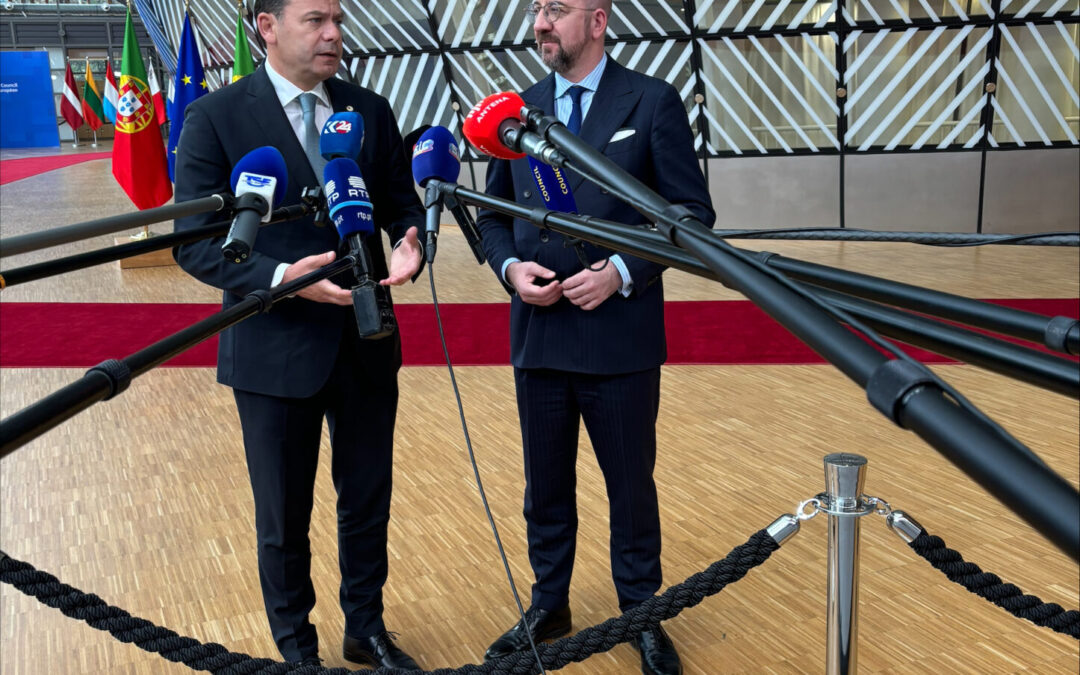The Prime Minister argued on Thursday night that António Costa’s name for the European Council “meets all the conditions to be accepted” at next week’s summit, after assuring his counterparts of Portugal’s “unequivocal support” for the nomination.
“I can also say, in the course of what had already been a statement that I had made to my colleagues in the European People’s Party [EPP], that this is a candidacy that meets all the conditions to be accepted and substantiated with a final decision,” said Luís Montenegro, at a press conference at the end of an informal meeting of the European Council, in Brussels.
The Prime Minister reiterated to his European counterparts “in absolutely unequivocal terms the support of Portugal, the Portuguese Government, and the Democratic Alliance” for the candidacy of the former Portuguese Prime Minister to succeed Charles Michel.
Luís Montenegro, similar to what he had said early Thursday afternoon, considered that António Costa and the PS share “very coincidental values” with those of the PSD regarding the European project and have “very close, albeit not always identical, points of view.”
And he again refuted the criticisms that AD only supports the socialist António Costa because he is Portuguese, acknowledging that this factor also weighed in the decision, as it would for any country having a candidate considered for one of the three top posts of the European Union.
The informal dinner of European Union leaders ended on Thursday without an agreement, in a first discussion that will be resumed next week on the top posts in the next term that involve former Prime Minister António Costa, a community source advanced to Lusa.
The same European source indicated that the leaders in the European Council want to see a program before agreeing on the names.
Several bilateral meetings took place before, during, and after the dinner to facilitate negotiations, indicated several European sources.
This was the official start of a debate on the EU’s top posts which should culminate in a decision at next week’s ordinary European summit, discussing António Costa’s name for the leadership of the European Council, Ursula von der Leyen’s and Roberta Metsola’s names for second terms in the Commission and Parliament, respectively, and Estonian Prime Minister Kaja Kallas’s name for the head of EU diplomacy.
This informal dinner of EU leaders on the top posts in the next institutional cycle, between 2024 and 2029, took place a week after the European elections, which gave victory to the European People’s Party (EPP), followed by the Socialists and Democrats (S&D) and the liberals of Renew Europe.
Today, the three parties – EPP, S&D, and liberals – “presented the three leading candidates,” thus including António Costa’s name for the European Council, advanced a European diplomat involved in the negotiations to Lusa.
The Socialists are expected to announce their official support for António Costa soon, as well as the endorsement of Von der Leyen, a step that the EPP (which has more leaders in the European Council) is awaiting before deciding to support the former Portuguese Prime Minister.
António Costa, who resigned in November following judicial investigations, continues to be pointed out to succeed Belgian Charles Michel (in office since 2019) in the leadership of the European Council, in a nomination made by European leaders, who decide by qualified majority (55% of the 27 member states, representing 65% of the total population).
The European Council also proposes the candidate for President of the European Commission, an institution led since 2019 by Ursula von der Leyen, in a final approval that is then up to the European Parliament, which votes by absolute majority (half of the 720 MEPs plus one).
 go to the original language article
go to the original language article
